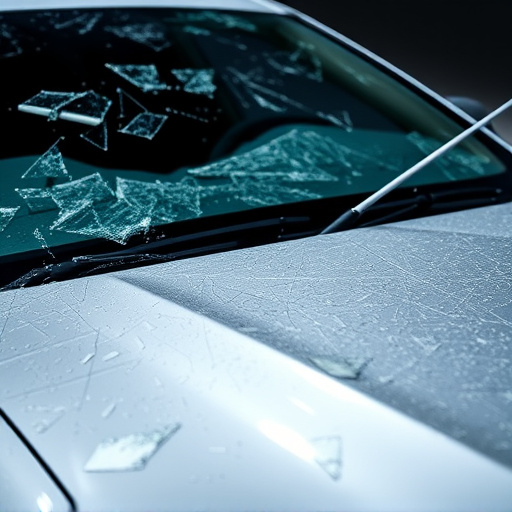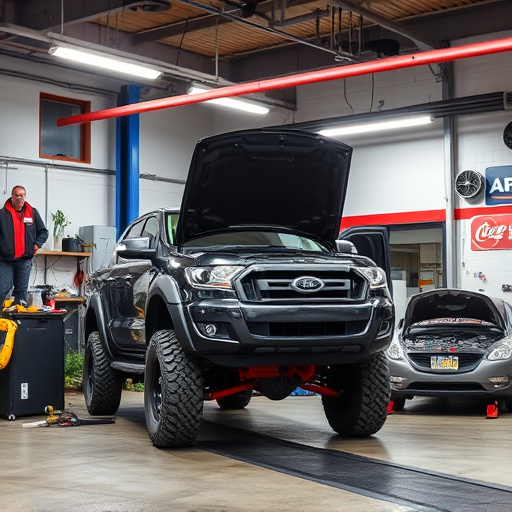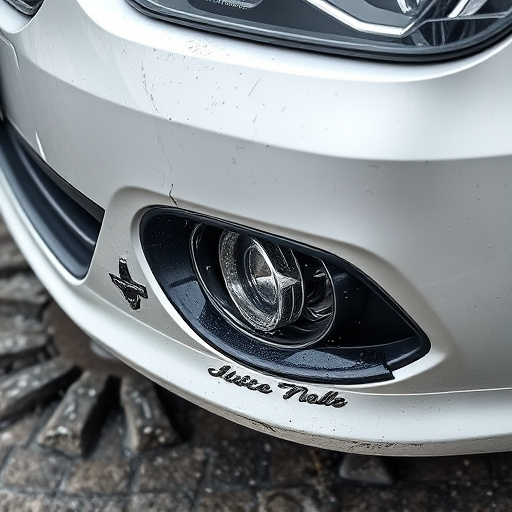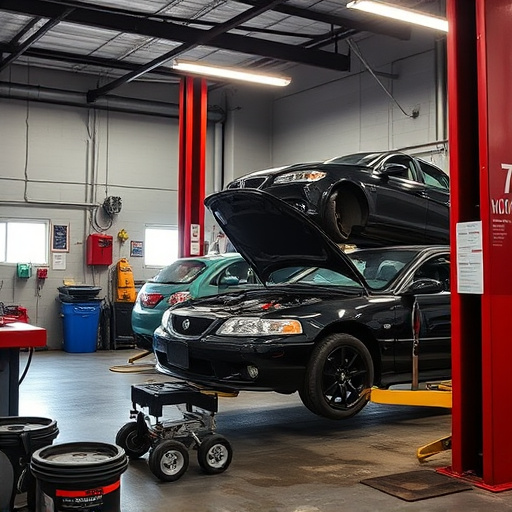Airbag safety certification is a critical process ensuring passenger protection through rigorous testing and inspection. Specialized shops play a vital role in airbag recalls by replacing faulty airbags using advanced techniques, adhering to strict safety guidelines, and conducting meticulous inventory assessments. Upon recall announcement, these shops swiftly inspect vehicles, identify defects, guide customers, employ safe dent removal, maintain records, and prioritize customer safety, contributing to public trust in vehicle safety.
In today’s automotive landscape, ensuring airbag safety certification is paramount. As vehicle manufacturers navigate product recalls, shops play a crucial role in facilitating safe and efficient solutions. This article delves into the intricacies of airbag safety certification requirements, explores shop response protocols during recalls, and emphasizes the importance of quick customer safety measures. By understanding these processes, workshops can effectively contribute to the overall safety of drivers and passengers.
- Understanding Airbag Safety Certification Requirements
- Shop Response Protocols During Product Recalls
- Ensuring Customer Safety Through Quick Action
Understanding Airbag Safety Certification Requirements

Airbag safety certification is a critical aspect of modern automotive manufacturing and service. To ensure passenger protection, airbags must meet stringent industry standards set by regulatory bodies worldwide. These requirements cover various components, including sensor functionality, deployment mechanics, and material safety. Certification involves rigorous testing to verify that airbags deploy correctly in simulated collision scenarios, minimizing risk while maximizing effectiveness.
Shops handling recalls related to airbag safety certification play a vital role in the process. They are tasked with inspecting and replacing faulty airbags, often utilizing advanced technologies like paintless dent repair for precise and seamless repairs. Collision repair shops and body shop services specializing in these areas ensure that vehicles return to roadworthiness while adhering to strict safety guidelines, ultimately contributing to the overall safety of drivers and passengers.
Shop Response Protocols During Product Recalls

When a product recall is issued due to airbag safety certification issues, shops handling such recalls must respond promptly and efficiently. The initial step involves a thorough evaluation of inventory to identify vehicles affected by the recall. This includes checking service records and vehicle identification numbers (VIN) to ensure all cars requiring repairs are accounted for. Once identified, shop personnel should communicate with customers, explaining the potential risks associated with defective airbags and providing information about the replacement process.
Shops play a critical role in ensuring public safety during recalls, especially for classic car restoration or vehicle paint repair projects. They must adhere to manufacturer guidelines and regulations when conducting repairs or replacements, which may involve dent removal techniques to access and install new airbag modules safely. Effective communication, meticulous record-keeping, and adherence to certification standards are key protocols that shops should follow to address recalls seamlessly while maintaining the highest safety levels for their customers’ vehicles.
Ensuring Customer Safety Through Quick Action

When it comes to recalling vehicles due to airbag safety issues, quick action is paramount. Car body shops and car repair shops armed with airbag safety certification play a crucial role in ensuring customer safety. As soon as a recall is announced, these professionals spring into action, meticulously inspecting each vehicle to identify the specific problem and determine eligibility for replacement or repair.
Their expertise in automotive repair allows them to navigate complex procedures, utilizing certified parts and following strict guidelines to address airbag defects effectively. This swift and precise response not only helps protect drivers and passengers but also instills public trust in the overall safety of motor vehicles, fostering a reputation for reliable service within the industry.
Shops play a vital role in ensuring customer safety during product recalls, especially those related to airbags. By understanding and adhering to strict airbag safety certification requirements, they can swiftly implement response protocols that protect consumers. Quick action, combined with effective communication, is key to fostering trust and maintaining the highest standards of safety in the automotive industry.














